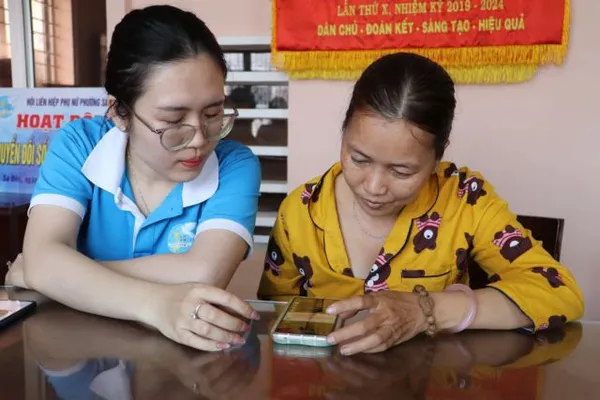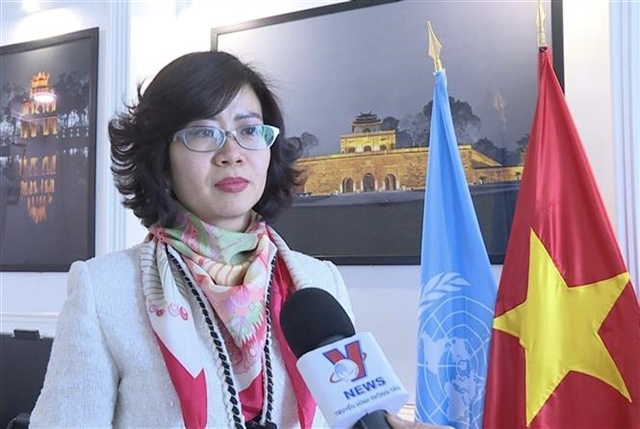 Society
Society


|
| Ambassador Lê Thị Hồng Vân, head of Việt Nam’s delegation to UNESCO. — VNA/VNS Photo |
PARIS — Looking back on the last 20 years since the adoption of the UNESCO Convention for the Safeguarding of the Intangible Cultural Heritage in 2003, Việt Nam can be proud of its achievements and active contributions to the implementation of this treaty, not only at the national but also global level, said Ambassador Lê Thị Hồng Vân, head of Việt Nam’s delegation to UNESCO.
The ambassador made the remarks during an interview granted to the Vietnam News Agency on the occasion of the convention’s 20th anniversary (April 18).
She elaborated that at the national level, Việt Nam, one of the 30 first states to join this convention, has made numerous efforts to integrate the treaty’s contents and spirit in its laws, programmes, and projects related to intangible cultural heritage as well as socio-economic aspects.
The country’s experience, knowledge, and efforts in protecting and bringing into play intangible cultural heritage in terms of theory, law, and practice have been highly valued as good lessons for many countries in the region and the world, contributing to the effective and practical enforcement of the convention.
By protecting and optimising the value of its 15 intangible cultural heritage items recognised by UNESCO, Việt Nam has helped preserve the representative heritage of humanity and those in need of urgent safeguarding, Vân went on.
At the global level, the country has made proactive and constructive contributions, especially to the convention’s Inter-governmental Committee – the key executive mechanism of the convention. The country was one of the members elected the earliest to the Inter-governmental Committee, in the 2006-10 tenure. Last year, it was elected to the committee for 2022-26 with the biggest number of votes.
The elections held importance in many aspects as they showed Việt Nam’s growing stature and reputation in the international arena, the international community’s trust in the country’s capabilities at multilateral institutions, as well as their recognition of the country's contributions to the preservation and capitalisation of the values of domestic and global intangible cultural heritage, the ambassador said.
This is a result of the country’s foreign policy of multilateralisation and diversification of external relations, and comprehensive, intensive, and effective integration into the world, she opined.
As a member of the Inter-governmental Committee, Việt Nam has been directly taking part in the building and adoption of UNESCO’s important decisions about culture, helping realise the convention’s goals and priorities and guarantee national interests at the highest possible level in global cultural cooperation.
This has affirmed Việt Nam’s role and reputation at UNESCO and in the international arena in efforts to promote the importance of intangible cultural heritage, which is not only an essential resource for cultural diversity, creativity, dialogue among cultures, and social cohesion but also an impetus for sustainable development, according to Vân.
The diplomat said UNESCO’s recognition of 15 intangible cultural heritage items, along with eight tangible cultural and natural ones, is a demonstration of the international community’s high evaluation of Việt Nam’s cultural heritage and values.
Through the recognition of those heritage pieces, the country has opportunities to honour tireless efforts by the community and artisans in preserving, promoting, and passing down heritage values to future generations; introduce the cultural quintessence of Việt Nam and images of a country with both dynamic development and rich traditions; and garner international partners’ support for heritage protection and value capitalisation.
Việt Nam is also deeply aware that heritage recognition is not only a source of pride but also a responsibility of the country, all-level authorities, sectors, localities, and artisans in preserving and bringing into play heritage values, Ambassador Vân added. — VNS




